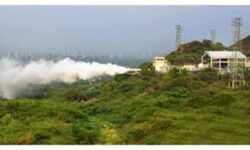A discussion on the consequences of critical policy decisions surrounding the BEST, local railways and Mumbai metro, and possible solutions
Over the decades we have seen eroding of all public services like health, education, and transport and simultaneous promotion of private profit. The erosion of public transport actually threatens livelihood of people of Mumbai.
Mumbai has witnessed 385% increase in two-wheeler traffic and 340% increase in private cars in last twenty years. On other hand BEST ridership has seen sharp fall of 40% in the past seven years. Increase in private vehicles has caused tremendous traffic congestion, also leading to extreme pollution. Today cars and bikes occupy 77% of road space and BEST buses which can carry multiple times the riders occupy merely 2% of road space. BEST has been reducing the staff, bus fleet, closing down routes and at the same time increasing bus fare. In 2018 itself BEST increased tariff by 30%. BEST workers went on strike from 8 January 2019 to 16 January 2019 in light of their unmet demands and non resolution of issues raised with the management, MCGM and government, which include the lack of funding to BEST bus service and moves towards privatisation.
Mumbai’s local train service which is the busiest commuter train service in world, carrying 7.5 million passenger every day, has been over crowded, leading to accidents and death of 10 persons every day. From 2002 till 2012 36,152 commuters have lost lives. Just last year 22 persons lost lives in crowded Elphinstone road station, due to stampede. How and why we are continuing to face this situation, without any solutions being found to strengthen the railway infrastructure and effectively alleviate the problems plaguing the rail network, used by maximum number of Mumbaikars.
On the other hand we have seen large investments being made to introduce new lines and expand the Mumbai Metro service – that is both unsustainable and inaccessible to large portion of the low income groups, working class and poor in Mumbai city, which gap is only bound to increase with the multiple price hikes. The Mumbai Metro line for North South also comes with irreversible environmental impact, at the cost of valuable green cover, stability of Mumbai city and the fate of its residents in the face of rapid sea level rise, Climate Change and increasing exposure to natural calamities and disasters.
Instead of budgeting improvement in public transport we witness plan for Coastal Road’s South Phase costing over Rs 12,000 crore for the benefit of private transport. We also have seen Rs 1600 crore worli-sealink which caters to average 32312 vehicles per day. And now we have the miracle of bullet train appearing at cost of 1.1 lakh crore. It is to discuss these issues concerning public transport in Mumbai city that this meeting is organised.




